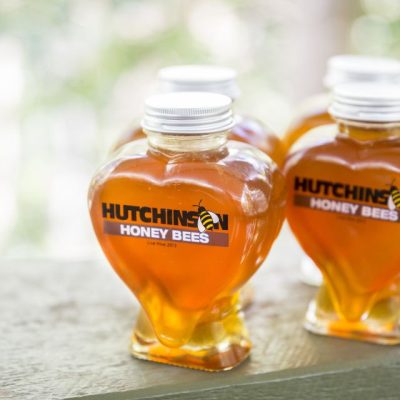Did we forget about the bees?
Written by: Nina-Paris Ackland
As sustainability continues to grow with traction and recognised for its importance in various aspects of life, it can be hard to keep up with the wide range of issues. There’s what feels like a multitude of issues ranging from drought management and food harvesting issues, tasks to add to your individual morning routine and the criticism of large organisations that “could be doing more”.
It can feel overwhelming.
What if I told you that there was an issue that interconnected with all the issues and actions I mentioned above? What if they were flying around your backyard? Wait, let me correct myself – what if the answer to a long list of problems could be fixed by something flying around and working in your backyard.
Bees.

We all watched the Bee Movie back in ’07, however, to be honest with you I hadn’t given it much thought in the last few years – neither I think have you. Only recently have I been reintroduced to the importance of the bee’s and what it can do to significantly assist Australia and the food security of this country.
(if you’re interested in rewatching the cinematic masterpiece that is the Bee Movie, both Binge and Stan have you covered)
Almost two thirds of Australia’s agricultural production profits from bee pollination which is an amazing statistic. When we delve further into this, there is a striking difference between the revenue generated by honey and other equivalent bee products, compared to the contribution estimated for agriculture overall thanks to pollination. In 2017, honey and hive products made around $100 million, whereas the dollar value of pollination services was around the $14.2 BILLION mark (When Bee Foundation, 2022).
Short story is that without the bees, Australia is screwed. There’s no other way to say it. This is cause for concerns.
Across the globe, there has been a recorded and noticed decline in bees. There have been reductions in both the number of species found globally, as well as the abundance and diversity of bees at local and country wide levels (Zattara & Aizen, 2021).
How did this happen?
An element of our eco system so integral, seemingly slipping away. It’s from a wide variety of factors which we can discuss at large, however best summarised include:
– Diseases and pests affecting bees
– The destruction of habitats
– Agricultural chemical use
– Declines in beekeeping commercially
If you have 11 minutes to spare and would like to explore the exact reasons why further, the below link to ‘Short Wave’ podcast is a great listen: https://www.npr.org/transcripts/825305756
With bees on the decline, it spells trouble for the world, and more significantly to our Australian readers – the Australian Agriculture sector.
Already battling uphill through droughts and floods, our farmers need every chance possible to keep the industry afloat. Bees are the answer. Multiple studies have shown that the addition of bees when plants are flowering improves both the quality and yield of crops – which is great news.
So, how do we improve the rates of bees in Australia?
Is there something we can do on a larger scale to deliver a BIG impact?
One organisation may have the answer for all – and no it’s not quote “sustainability” or “world peace” business, it is in fact from the land of construction…
Hutchinson Builders or “Hutchies” has been a leading force in what is know as the Urban Bees Movement. Hutchies have delivered at a national scale, by introducing beehives on the rooftops of buildings across Australia (Hutchinson Builders, 2022).
They recognise the serious catastrophe that is impending without some serious change and focus directed to the bees.
Going one step further, they have vowed to never sell their honey. Instead, they use it as corporate gifts to clients, and auction off to donate to charities such as “Save the bees”.
(jars pictured below)

For an industry that has not always have a positive reputation to have strong corporate social responsibility – Hutchies is making strides to breakthrough this negative stigma, and pave the way for others to follow.
Rooftop beehives.
Simple. Effective. Creates change.
This begs the question – could every building rooftop in Australia have a beehive?
With plenty of independent businesses looking to expand their honey services, this could be the perfect way forward – all while creating change at a national level, while not impacting or imposing on daily routines. (Would you really know if your office building had bees on the rooftop? I don’t think so… – thus the perfect way to create change with low impact to people’s daily lives)
It is this kind of innovation and thinking that businesses need to bring to the table – not just for the bees, but for whatever issue is close to their heart. The impact and scale from national projects and updates is unmatched.
As a country we can deliver whatever we set our mind too – that’s the Australian spirit right there.
In other news, does anyone have any good honey-based desserts to recommend?
Feel free to comment below your favourite recipes, and your thoughts on this week’s blog post. Feel free to answer the question – what CSR issue would you like your workplace organisation or business to tackle at a big scale?
Sources:
Bee One Third. (2022). Our story. https://beeonethird.com.au/pages/faq
https://www.triplepundit.com/story/2020/businesses-can-protect-pollinators/120731
Hutchinson Builders. (2022). Honey bees. https://www.hutchinsonbuilders.com.au/difference/the-heart/honey-bees
Orr, M. C., Hughes, A. C., Chesters, D., Pickering, J., Zhu, C.-D., & Ascher, J. S. (2021). Global Patterns and Drivers of Bee Distribution. Current Biology, 31(3), 451–458.e4. https://doi.org/10.1016/j.cub.2020.10.053
Triple Pundit. (2020, June 26). How Businesses Can Help Protect Pollinators on Their Own Grounds. https://www.triplepundit.com/story/2020/businesses-can-protect-pollinators/120731
When Bee Foundation. (2022). Bees and pollination. https://www.wheenbeefoundation.org.au/about-bees-pollination/
Zattara, E. E., & Aizen, M. A. (2021). Worldwide occurrence records suggest a global decline in bee species richness. One Earth, 4(1), 114 -123. https://doi.org/10.1016/j.oneear.2020.12.005.
